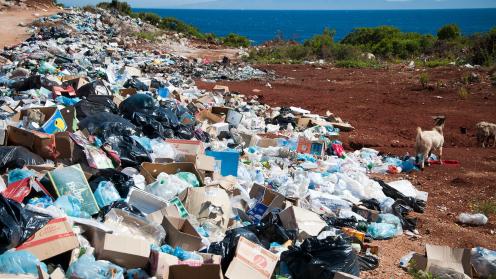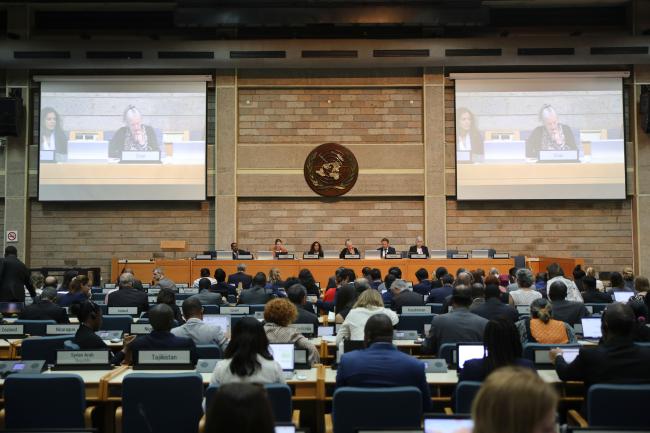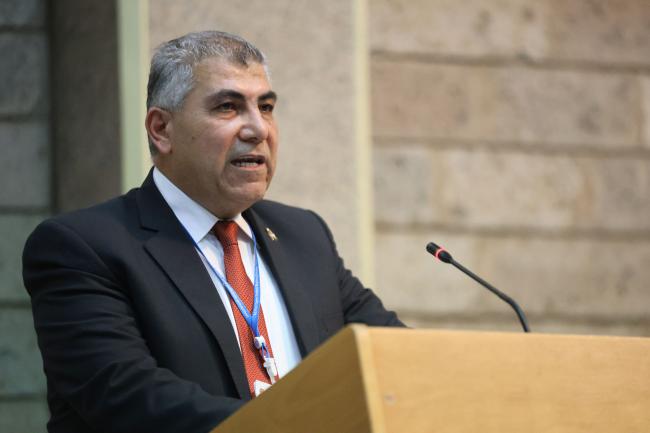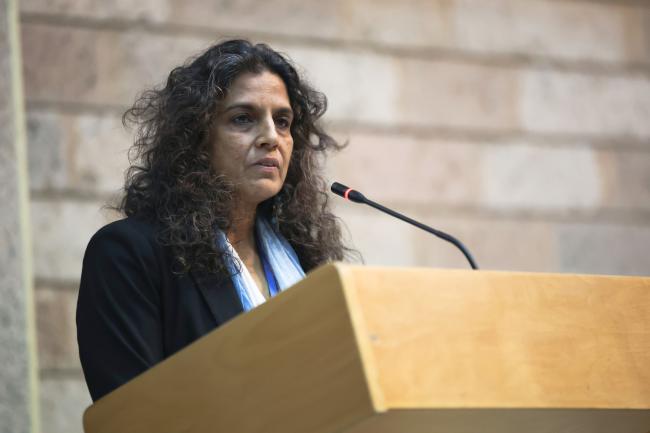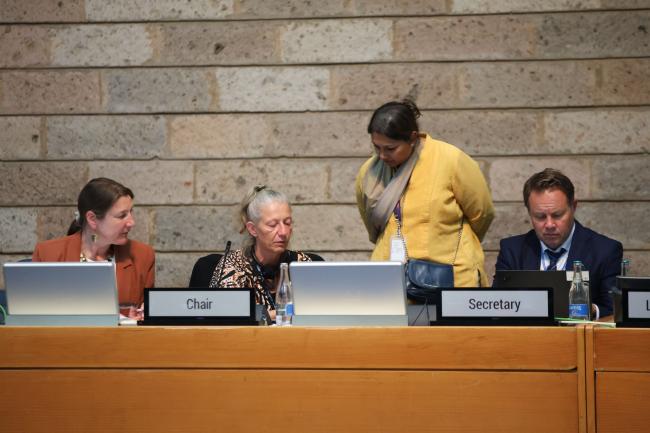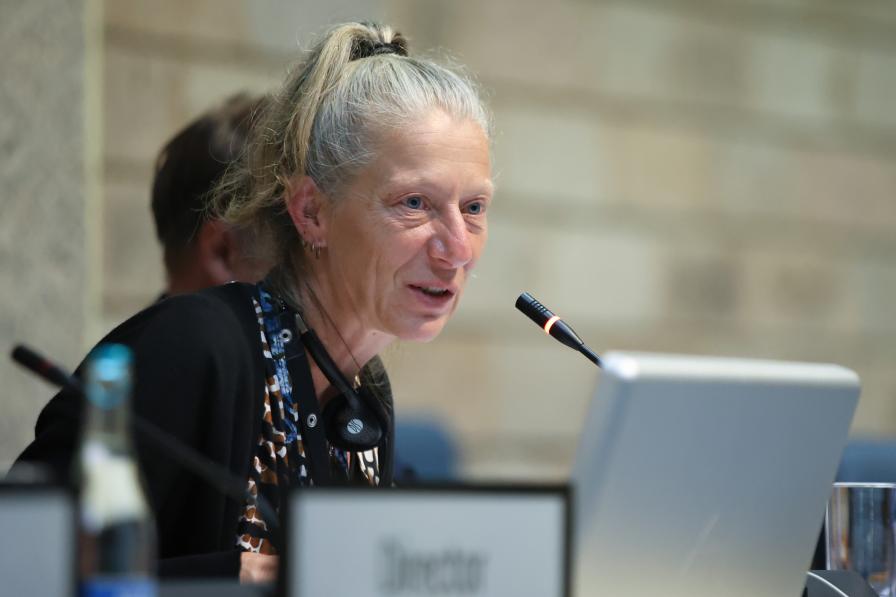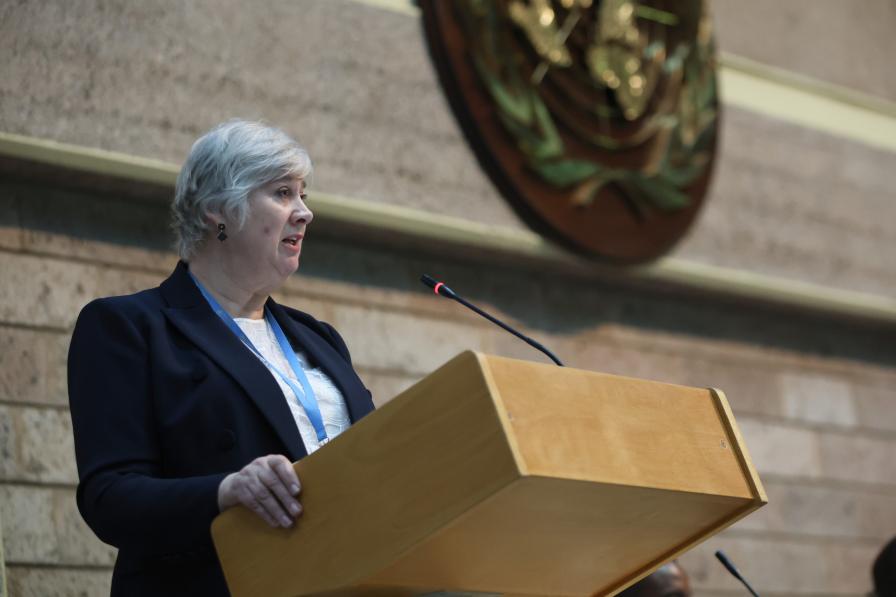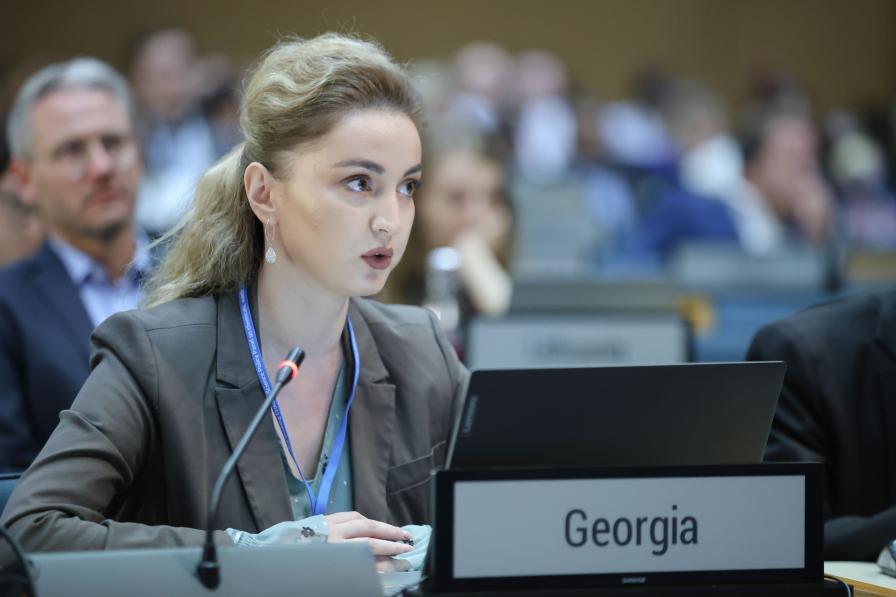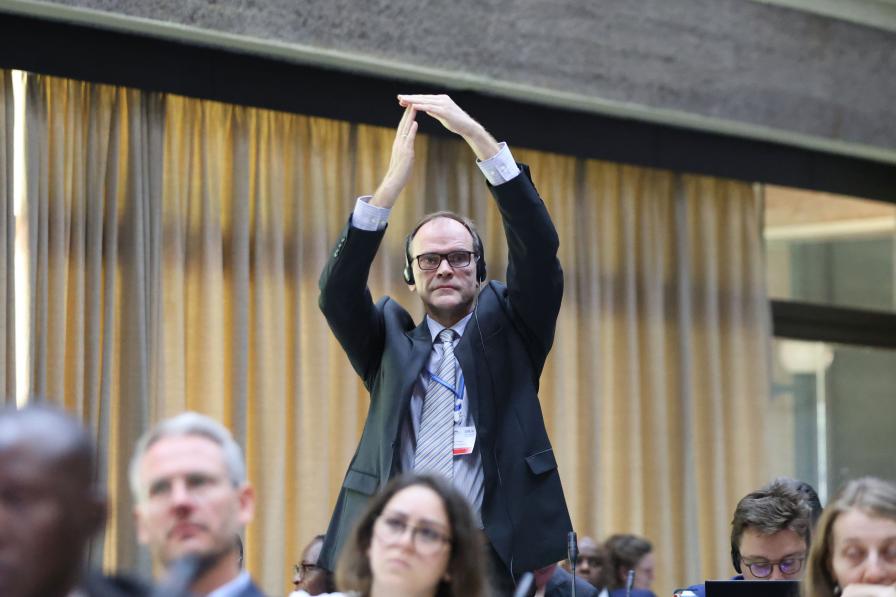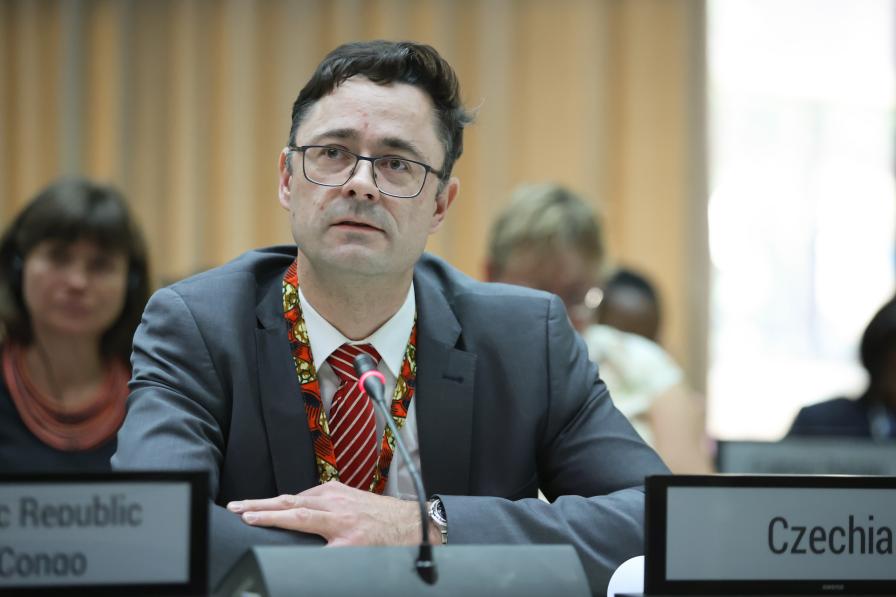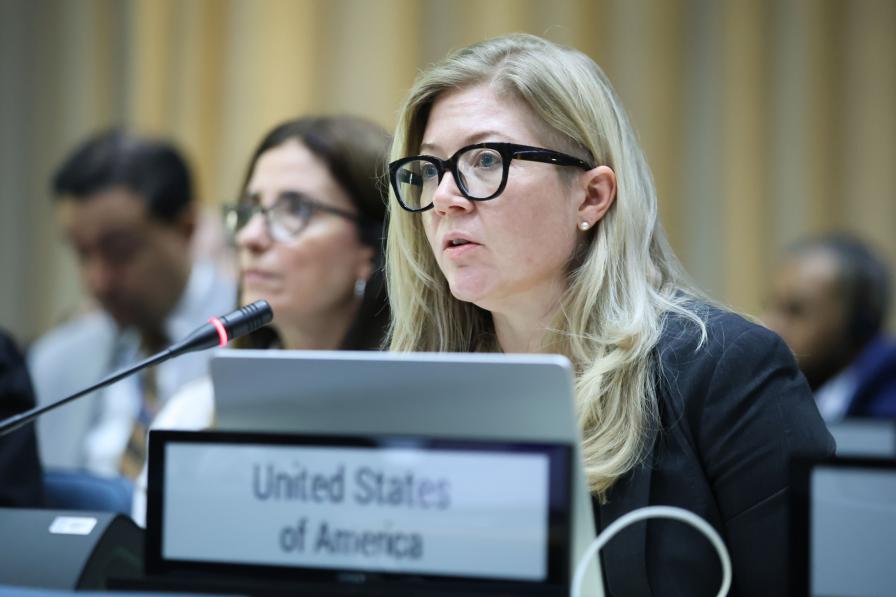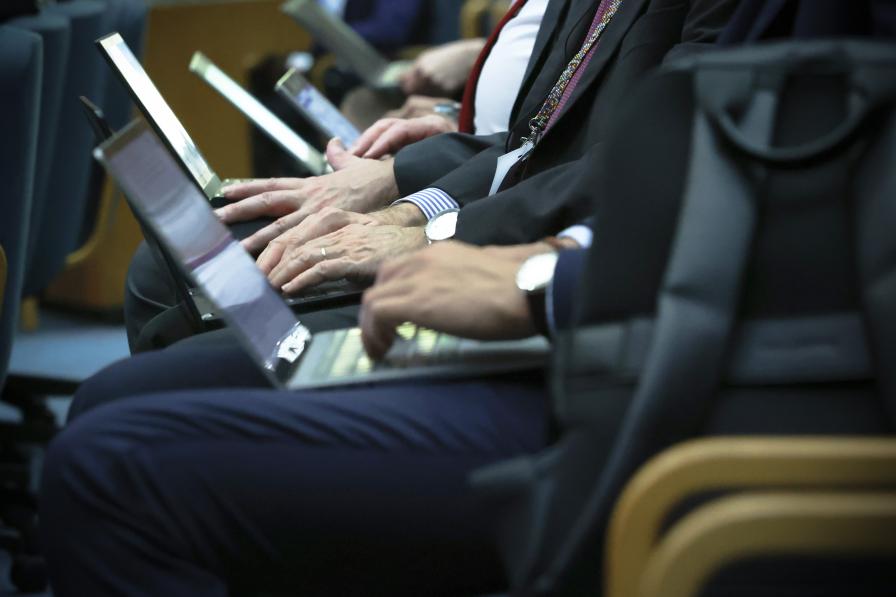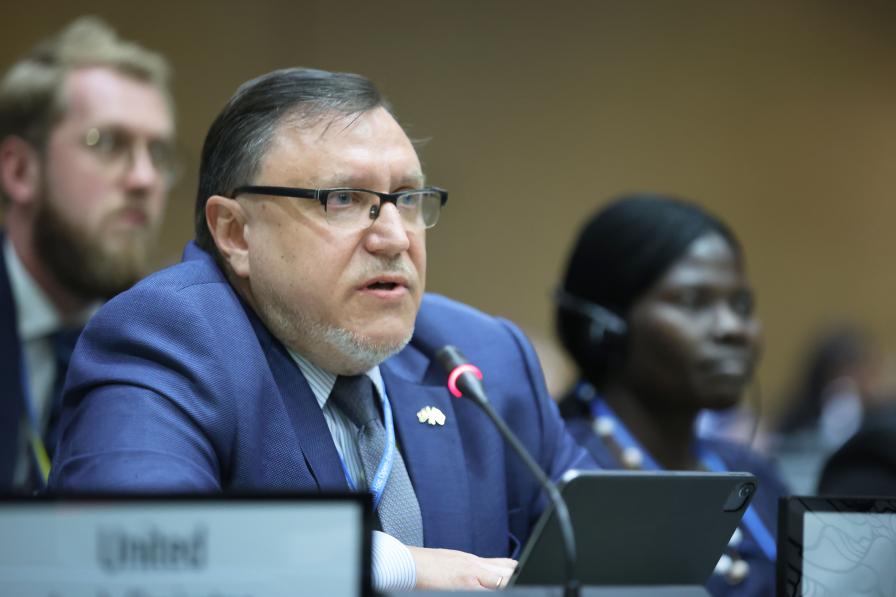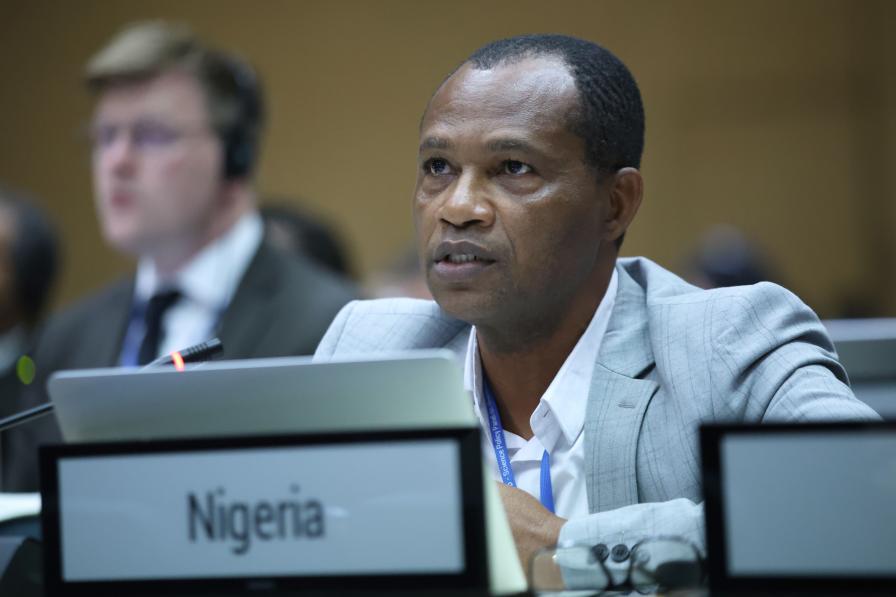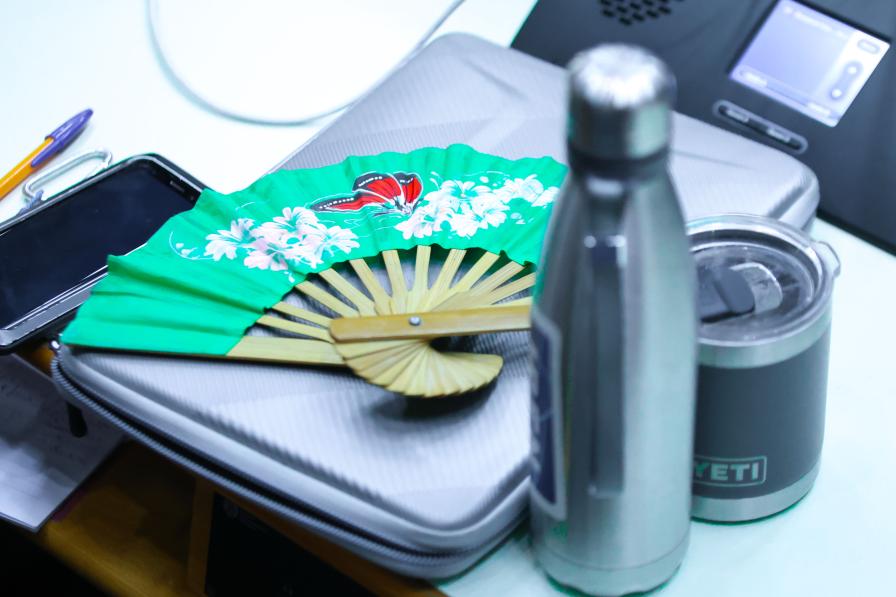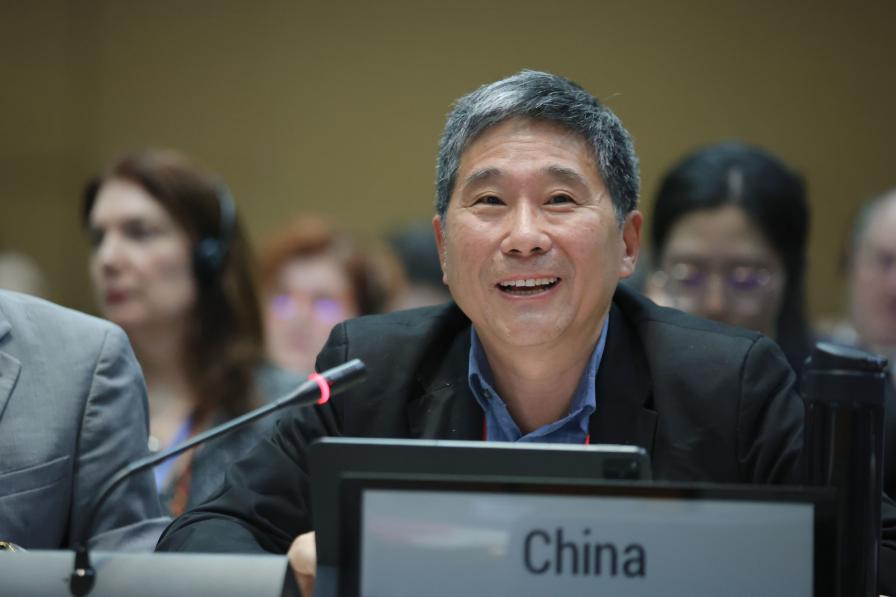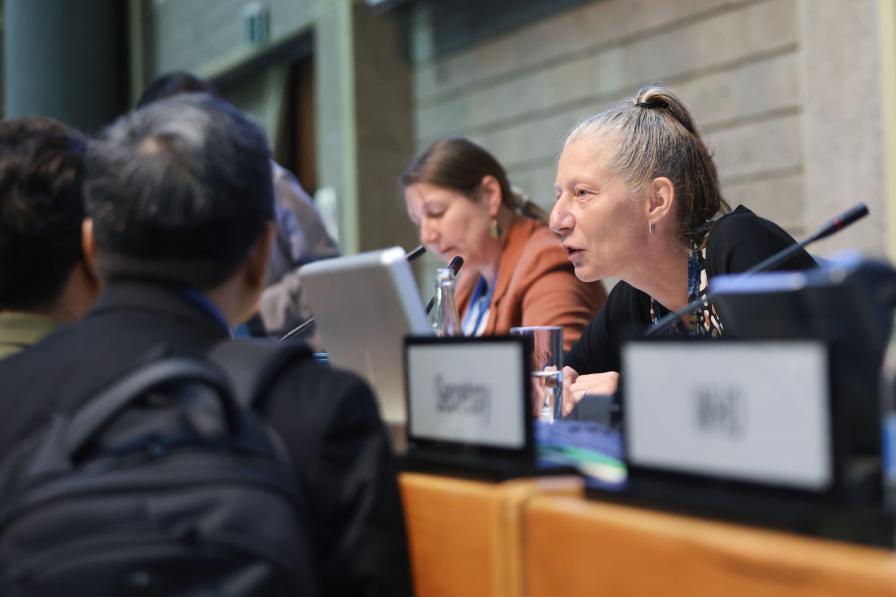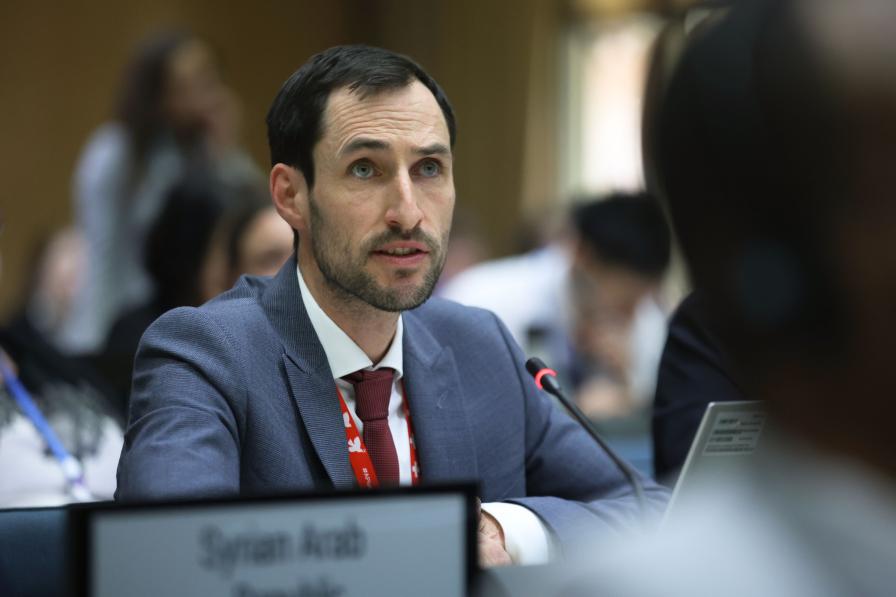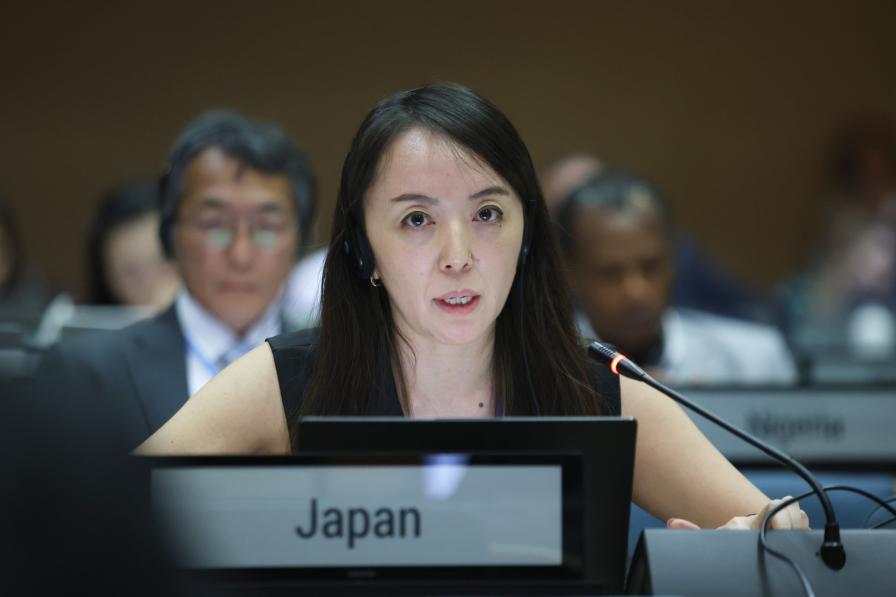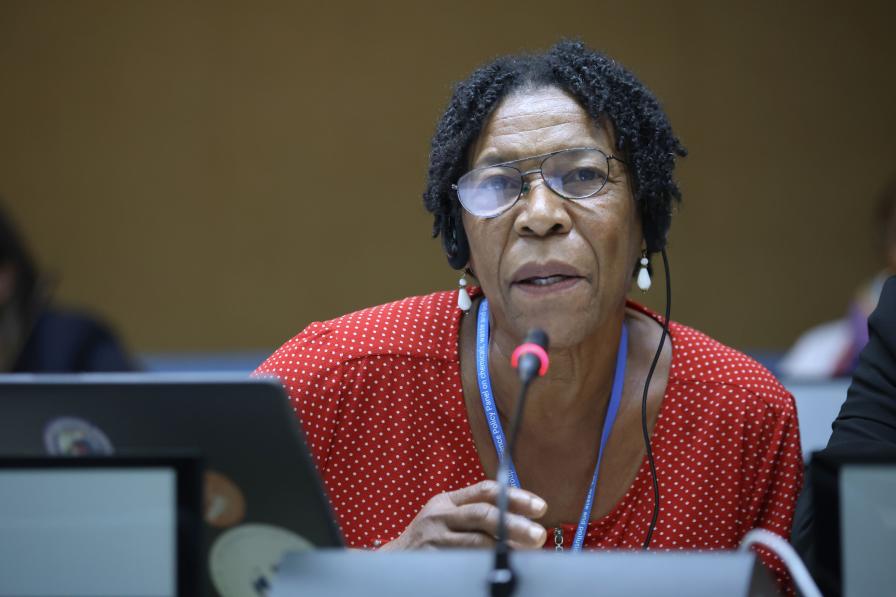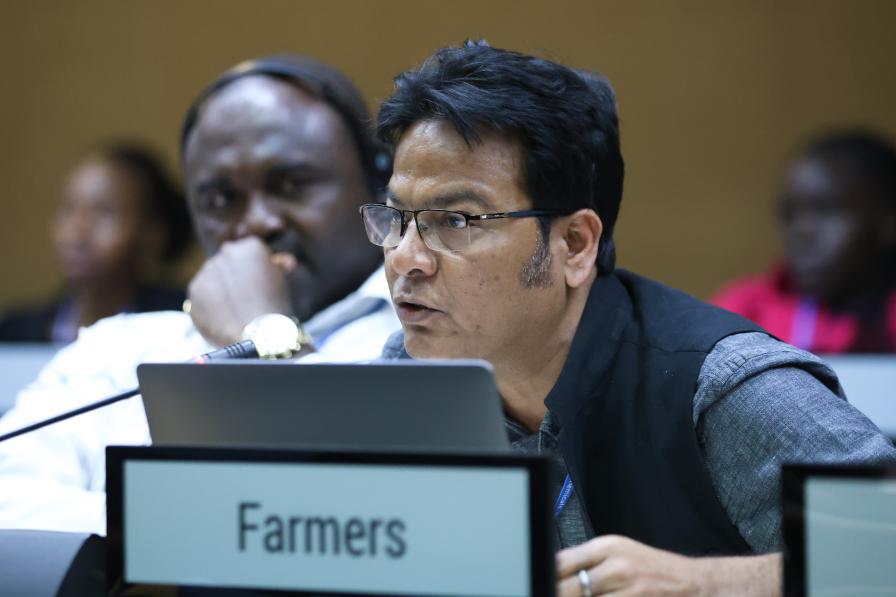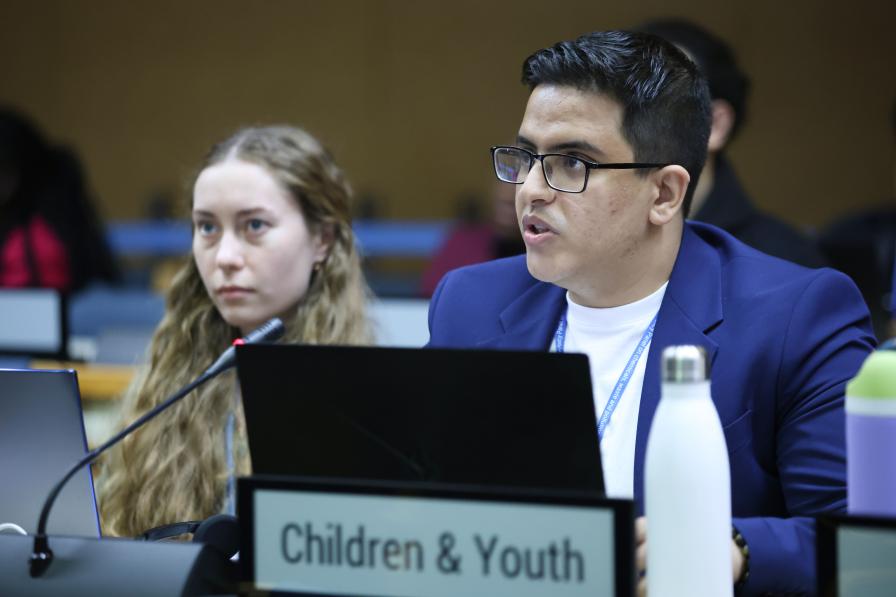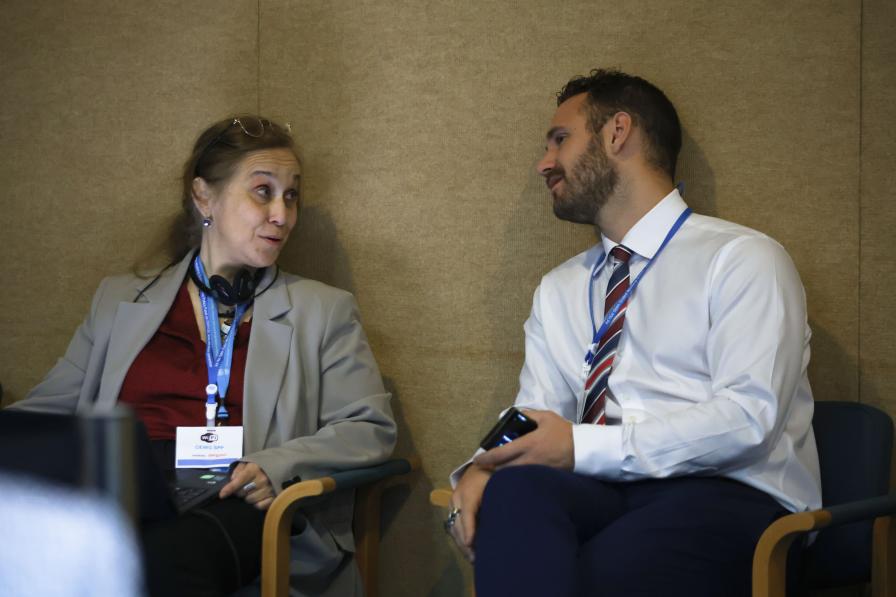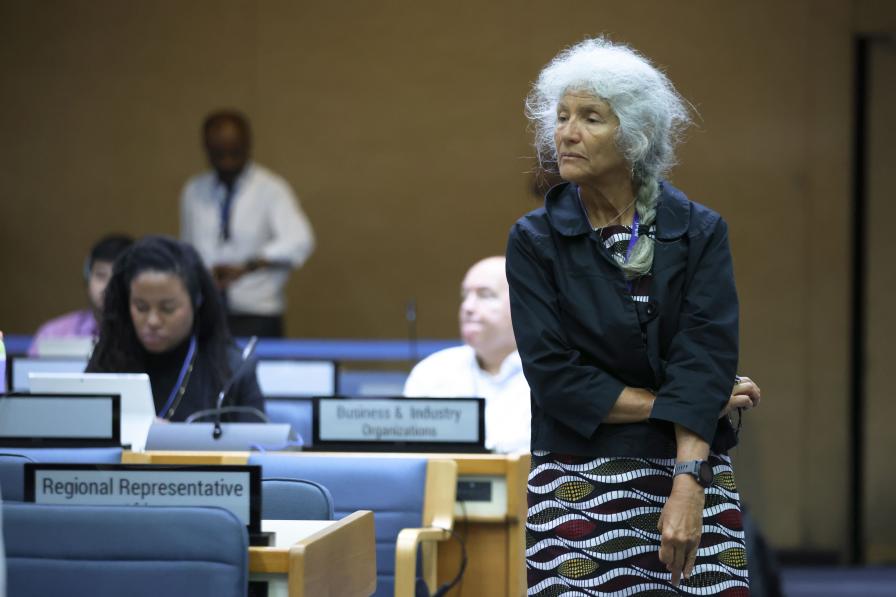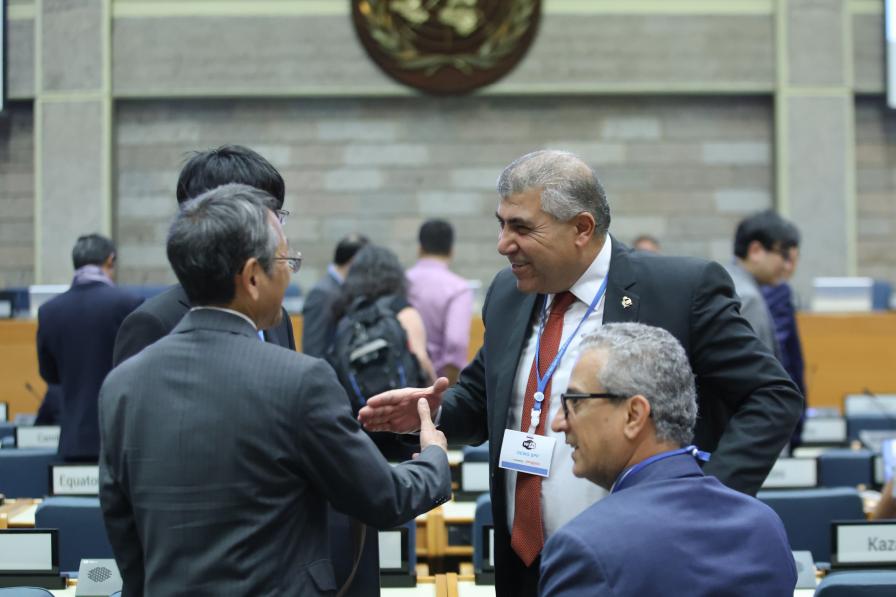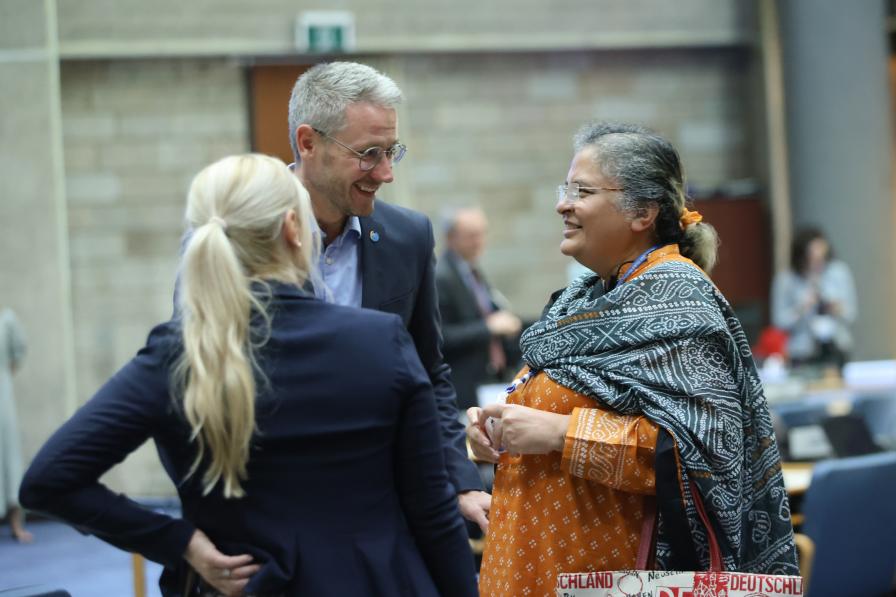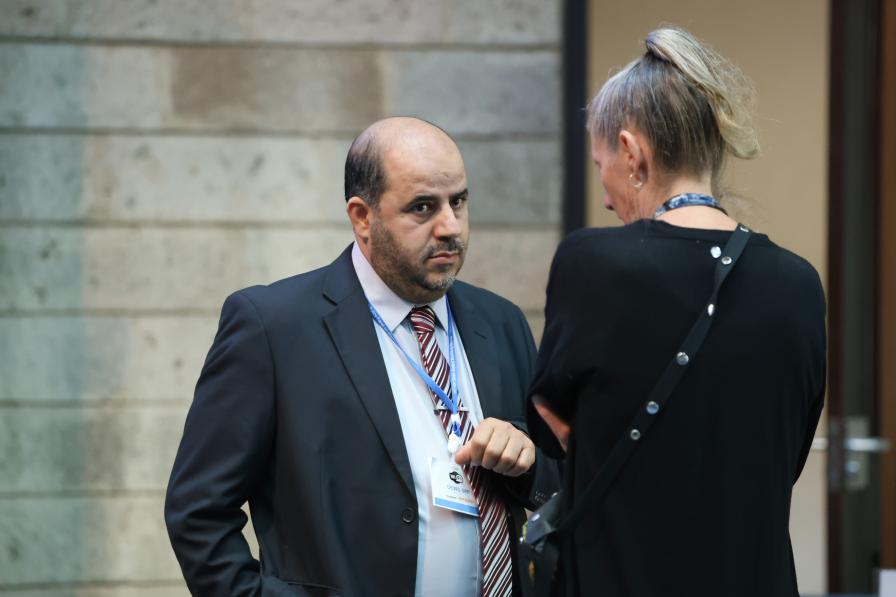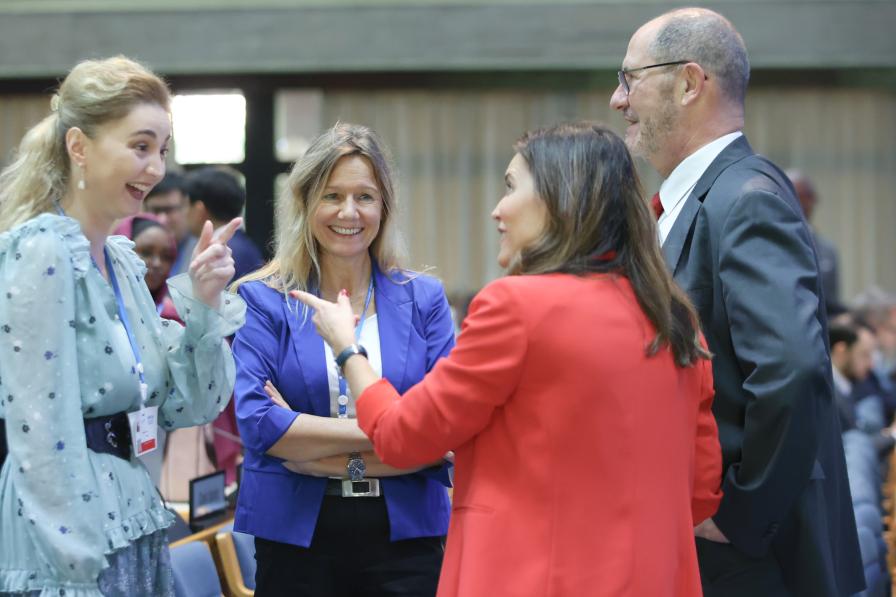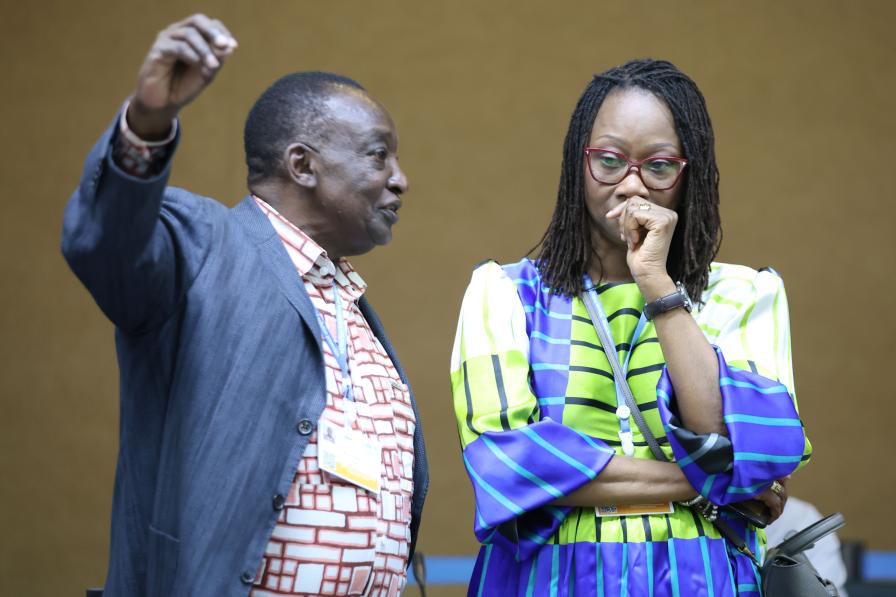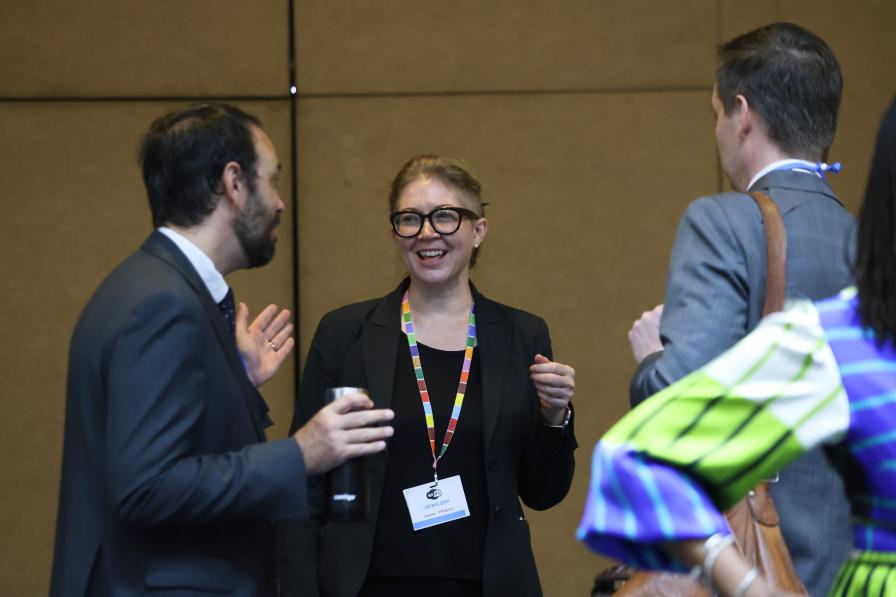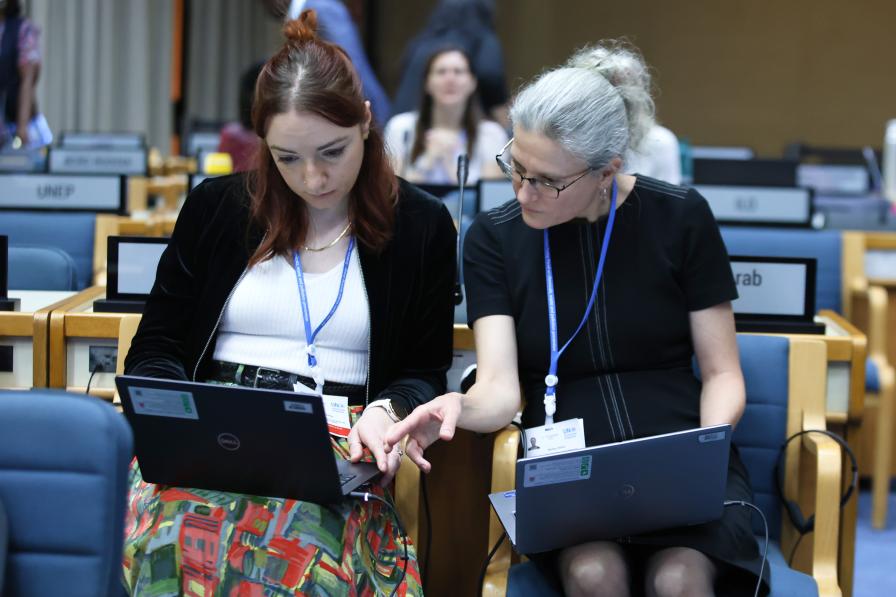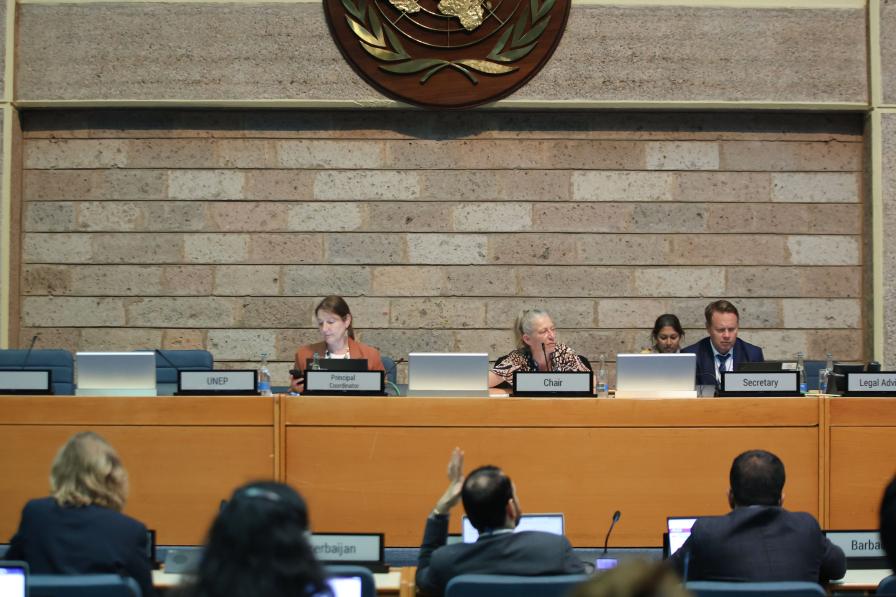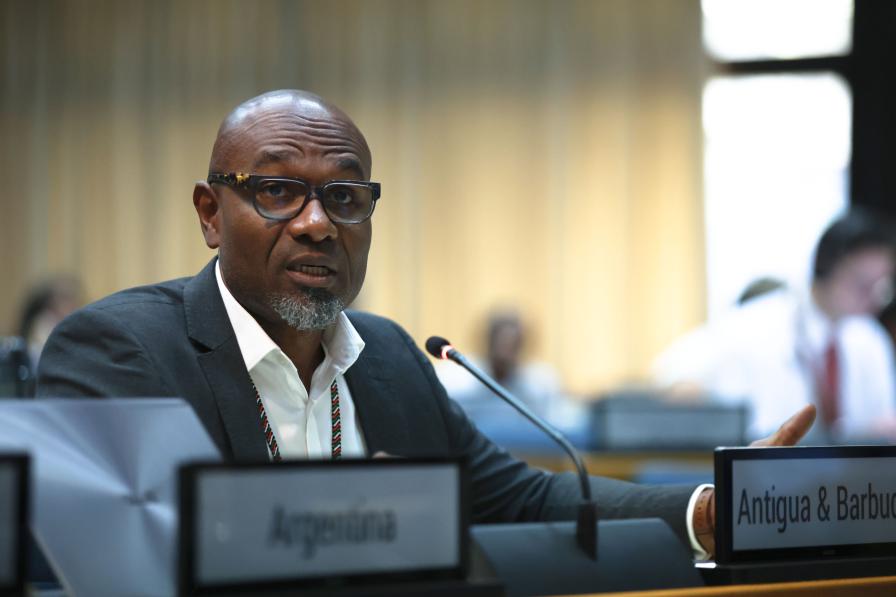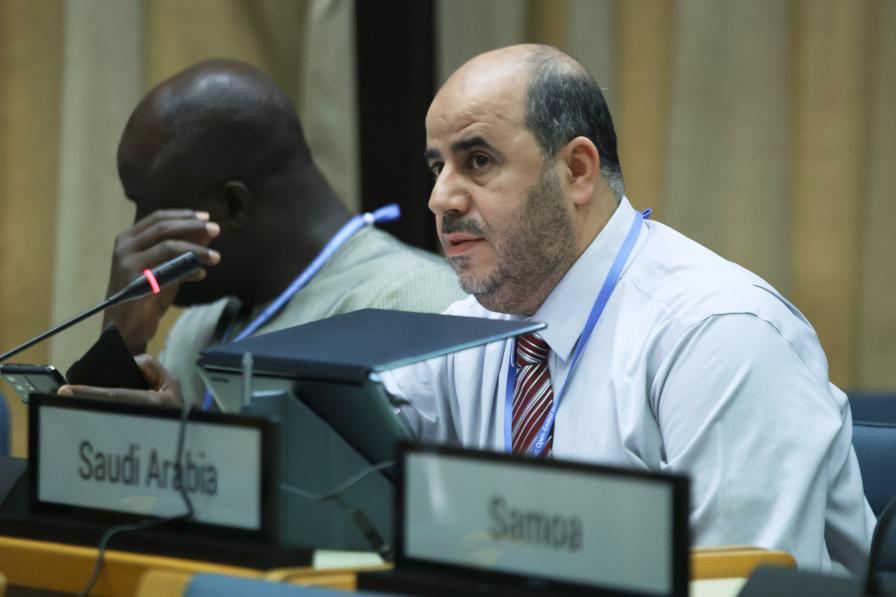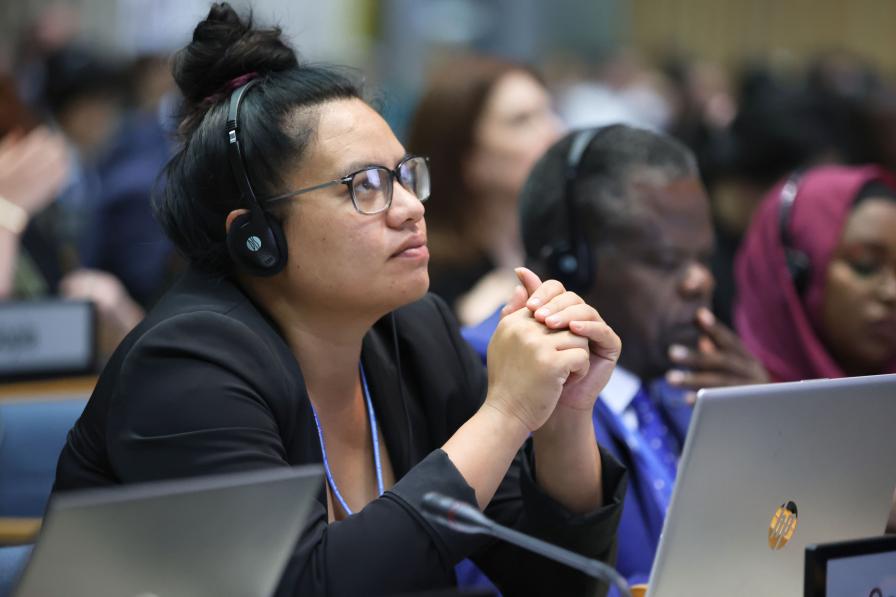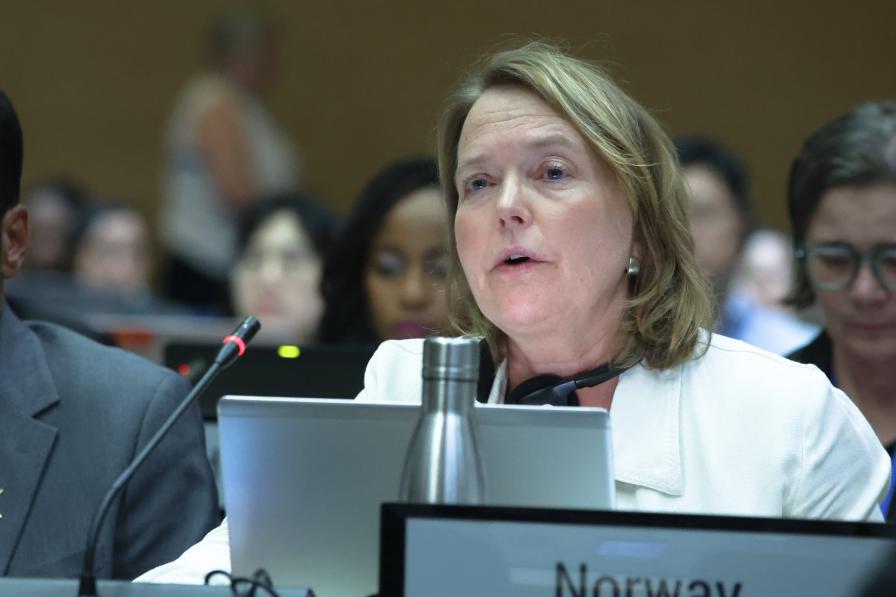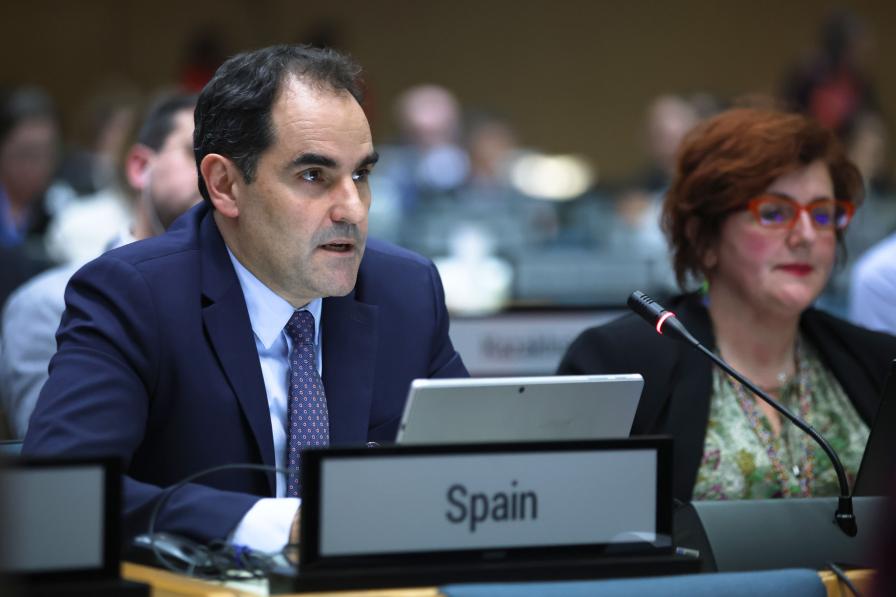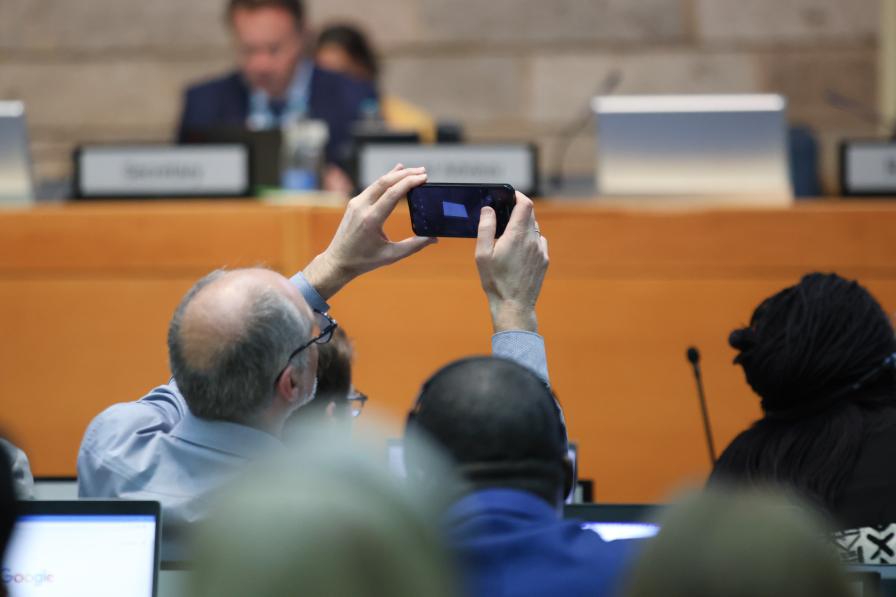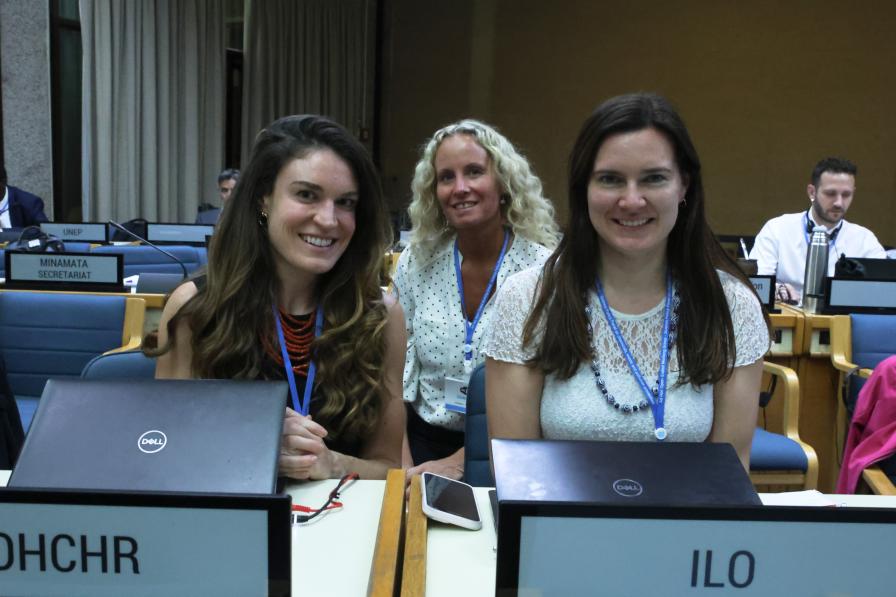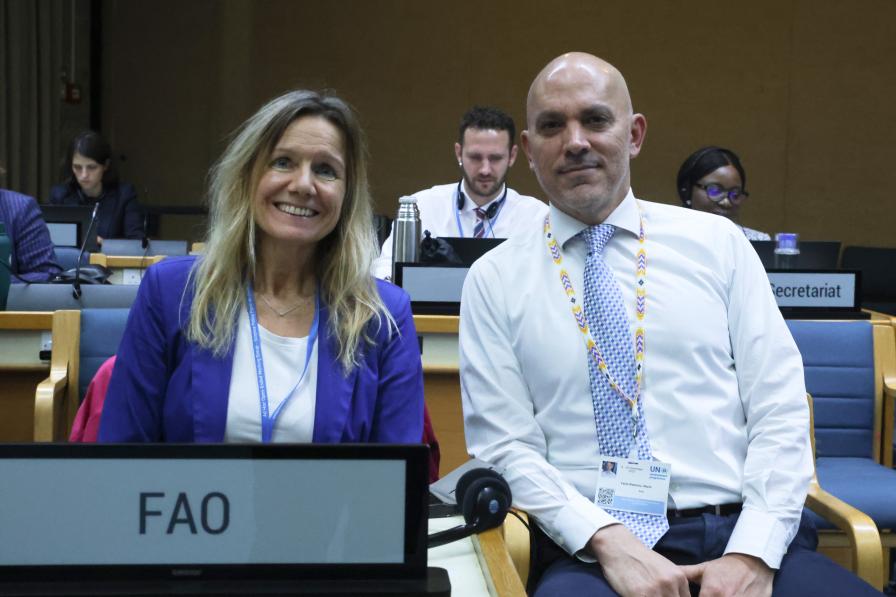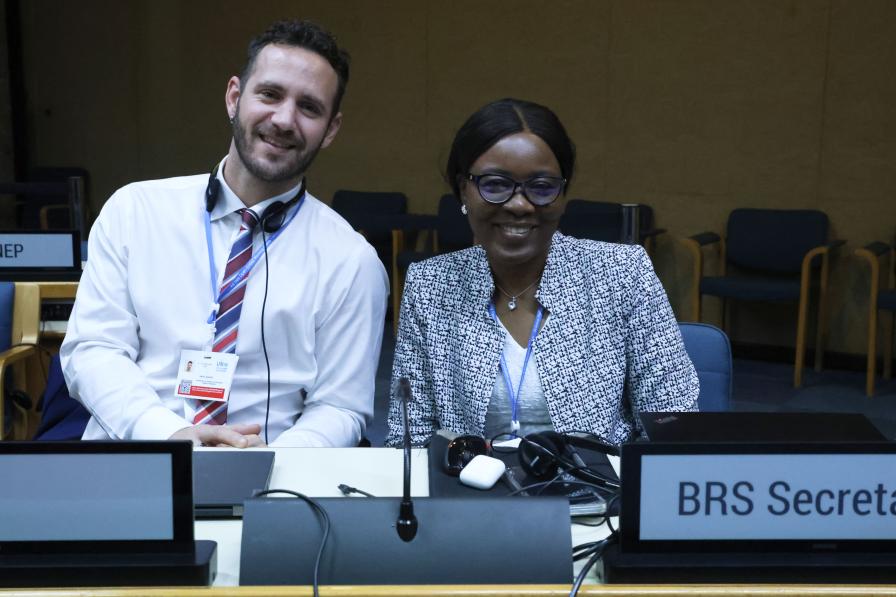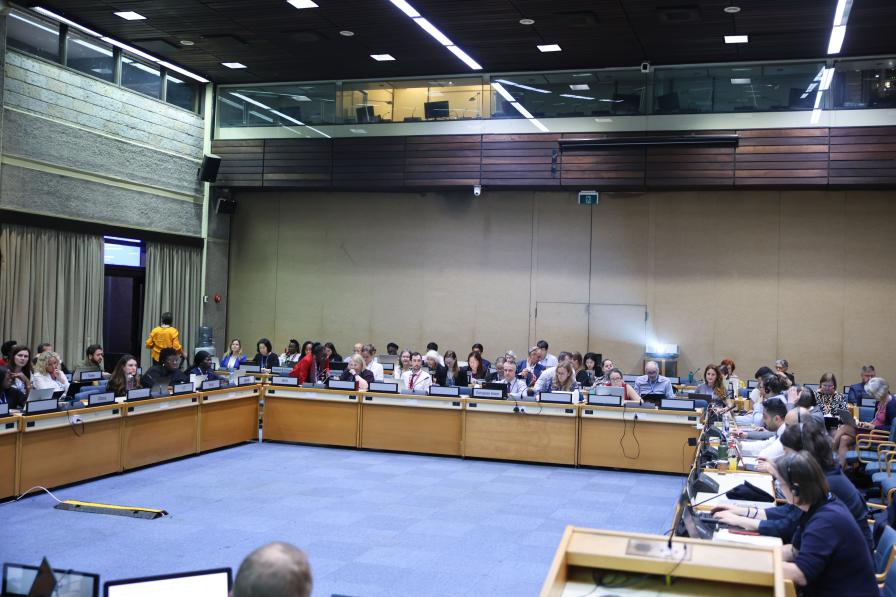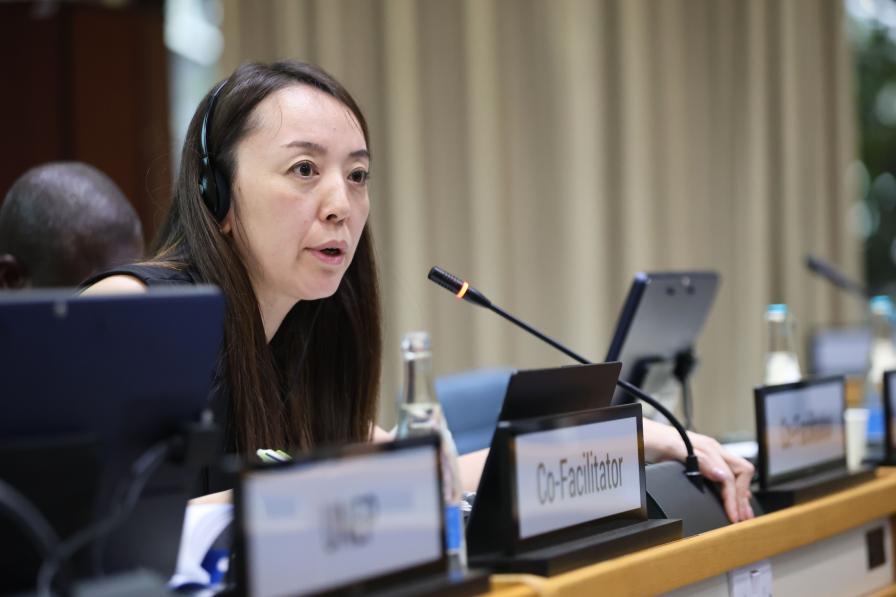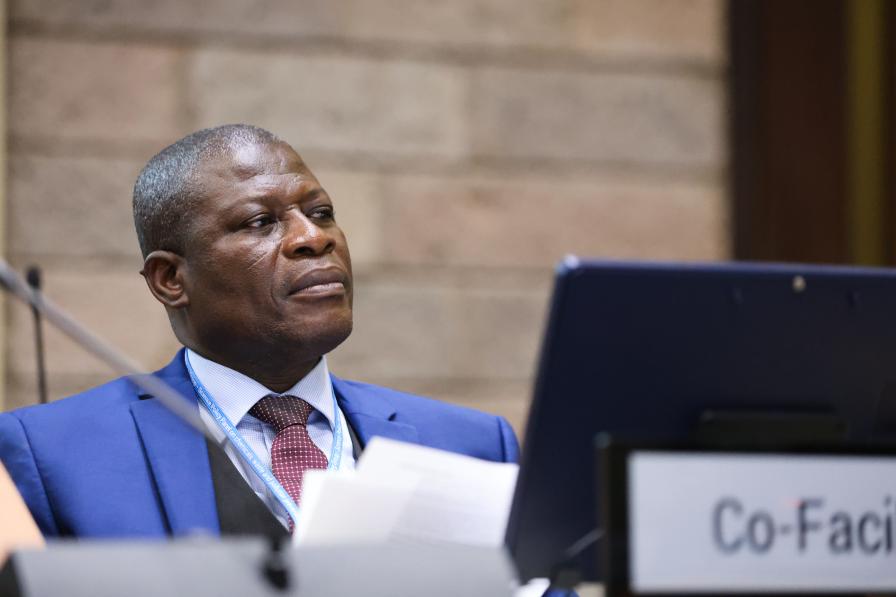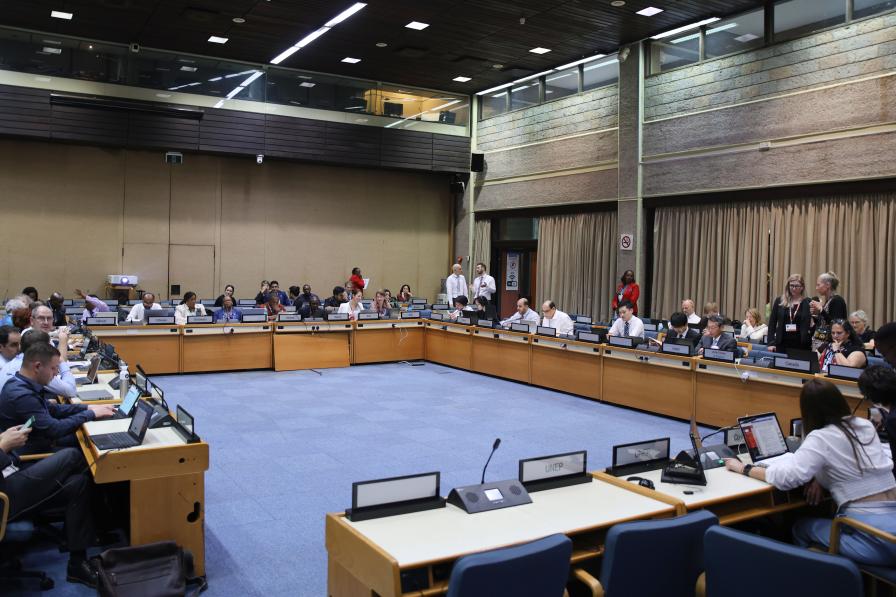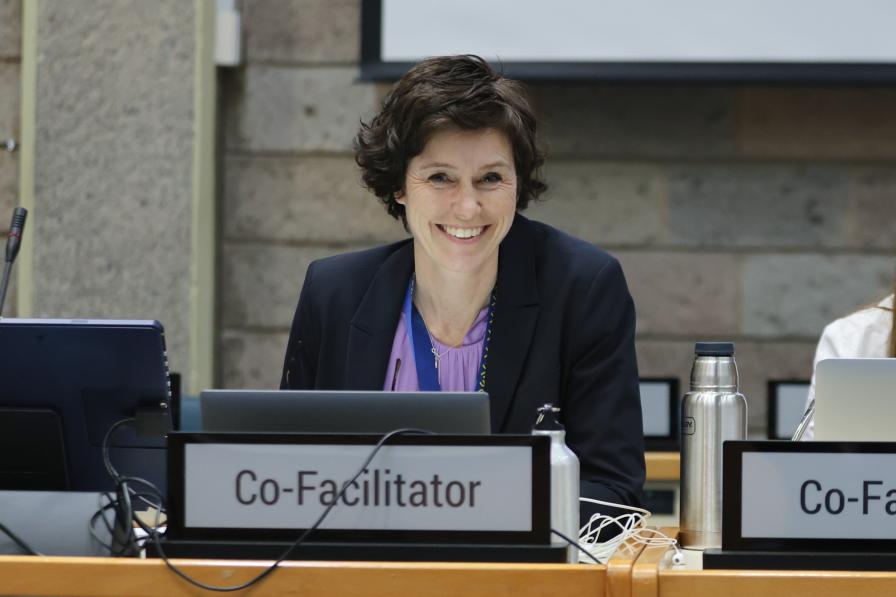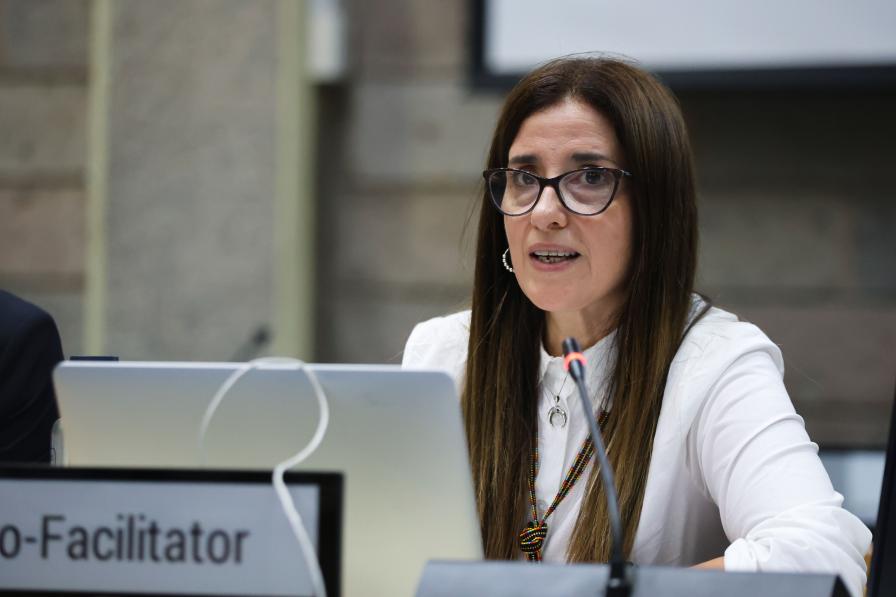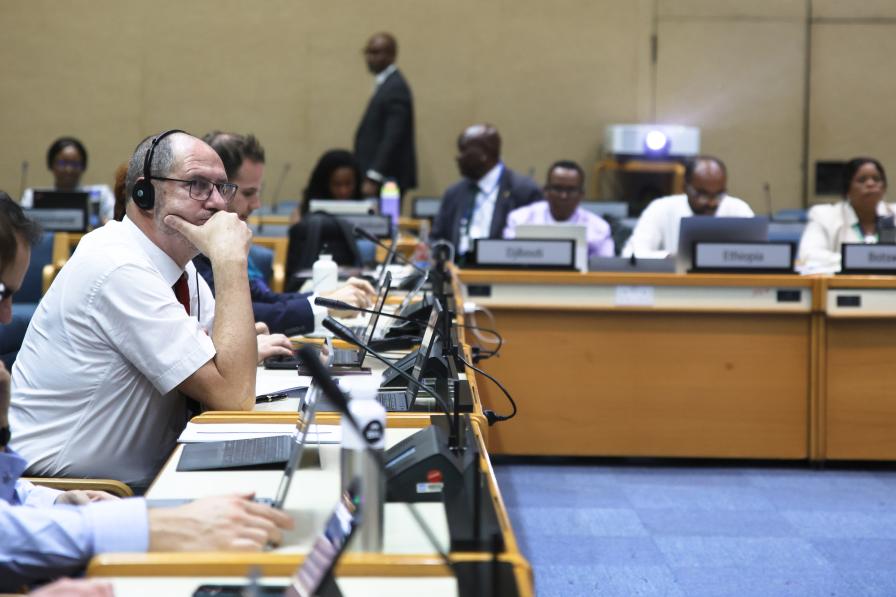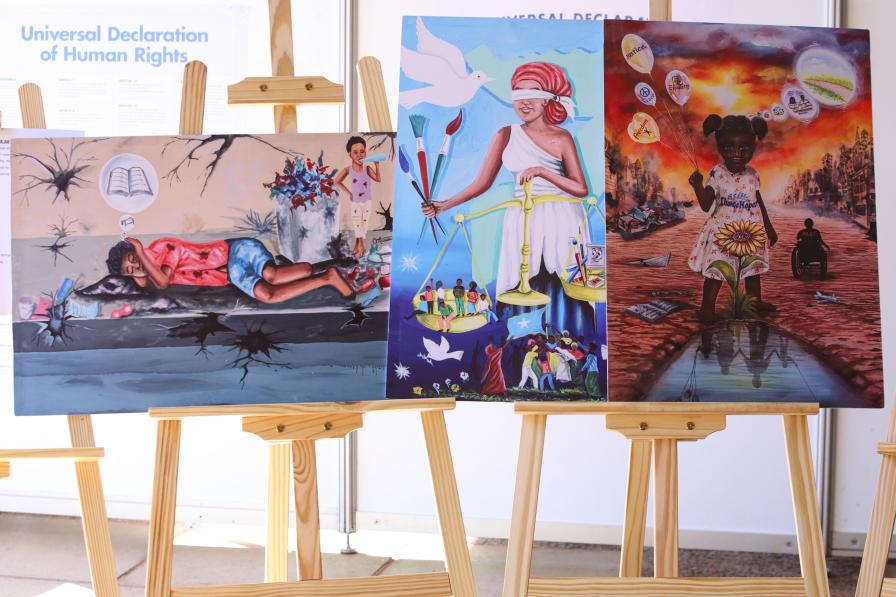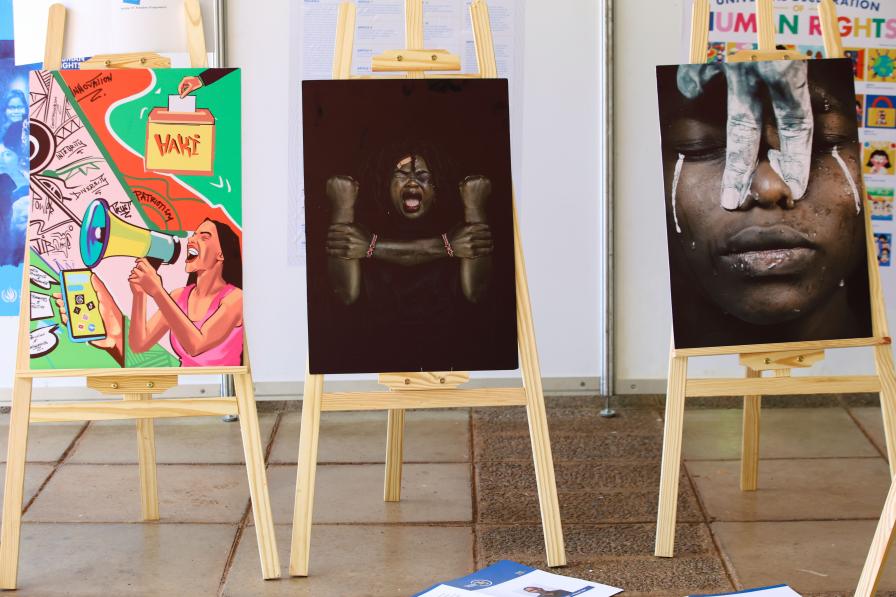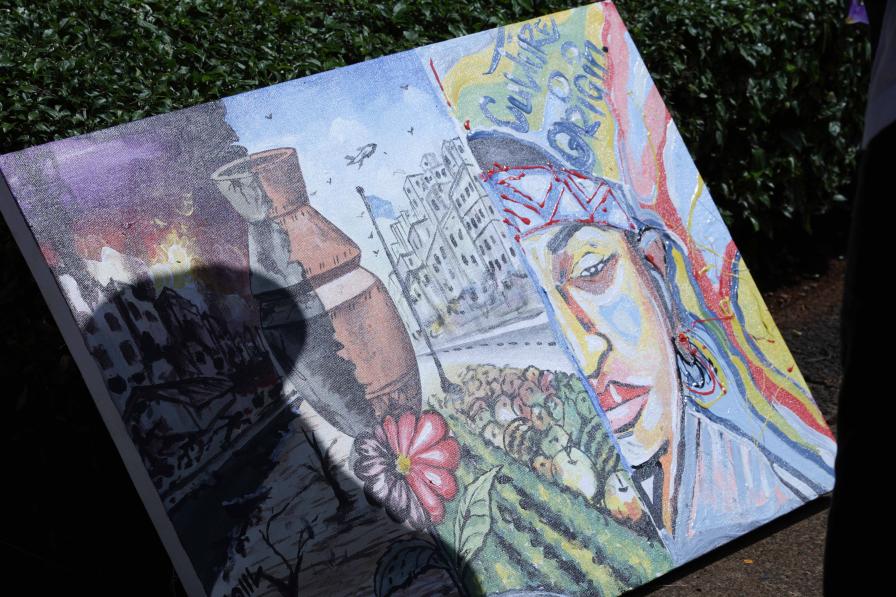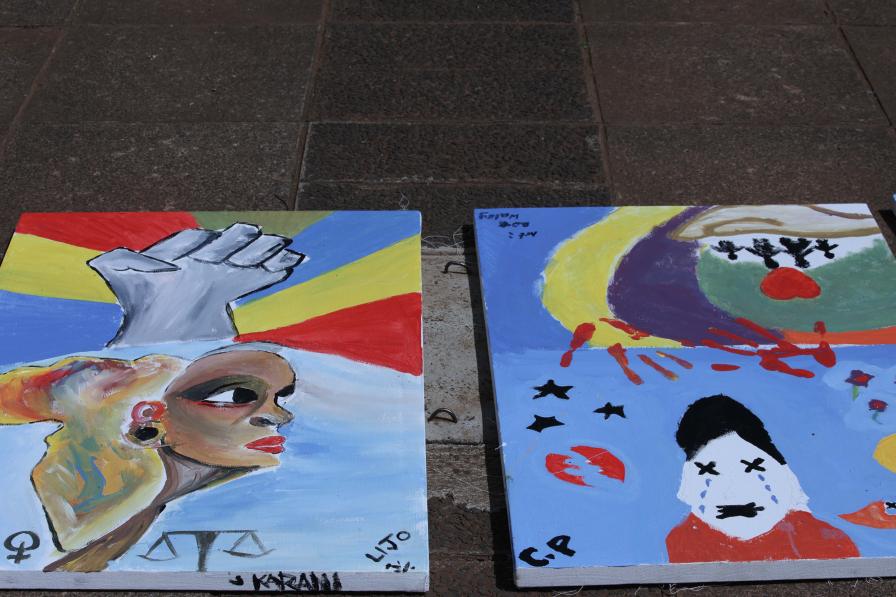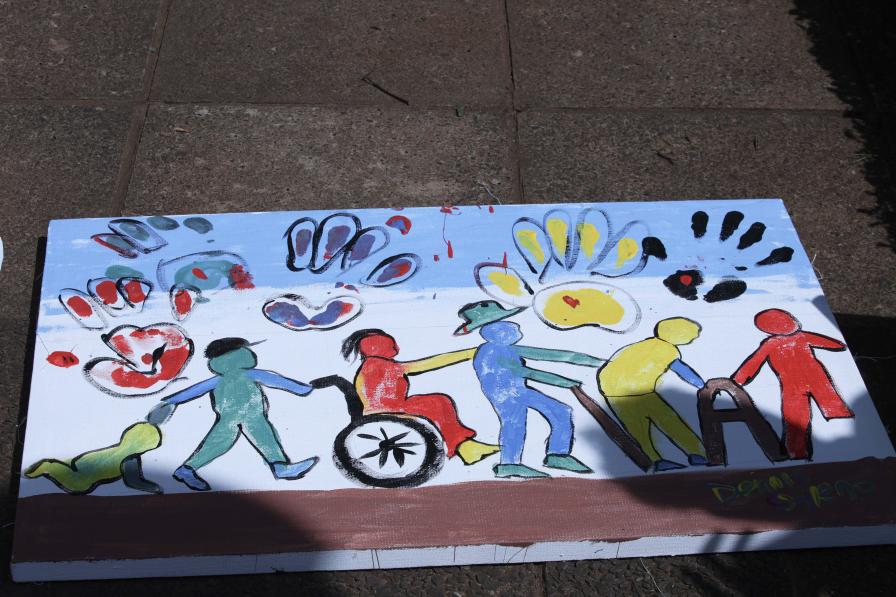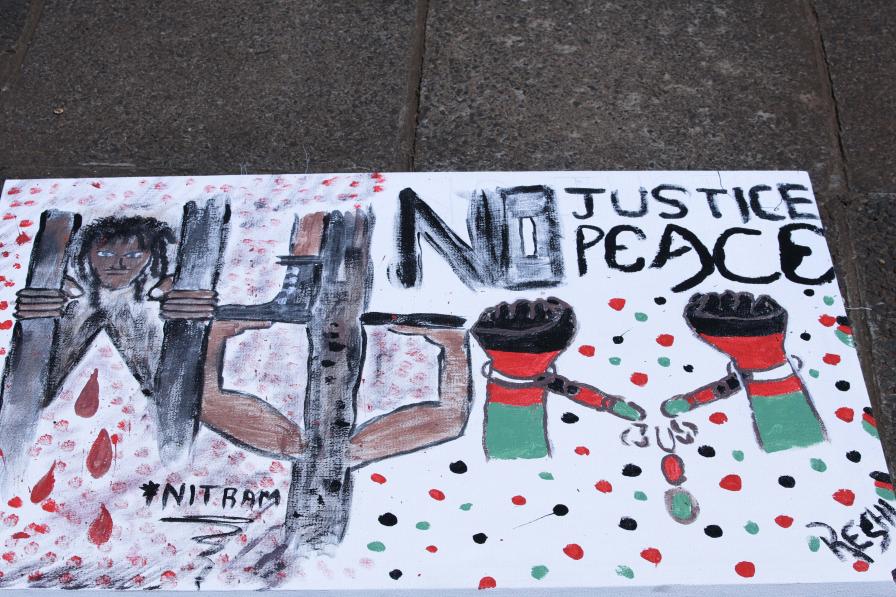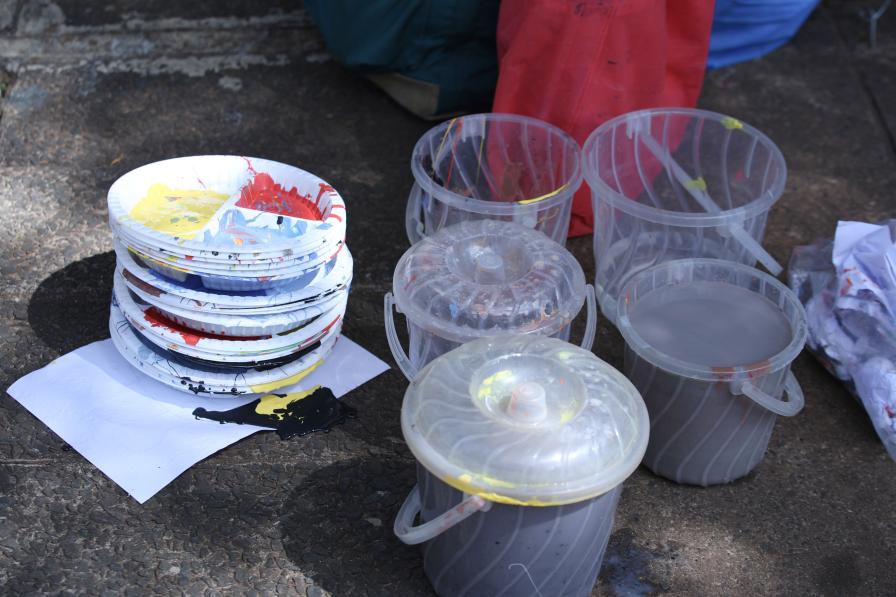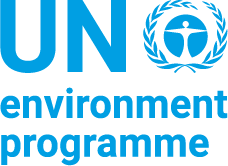While climate change and biodiversity loss have recently attracted increasing attention, many argue that chemicals, waste, and pollution still lag behind. While there have been positive recent developments, it is clear that strengthening their sound management, including through developing a robust science-policy panel, will allow for holistically tackling the triple planetary crisis. Thus, deliberations under the Ad hoc open-ended working group on a science-policy panel (OEWG SPP) to contribute further to the sound management of chemicals and waste, and to prevent pollution, are key for a sustainable future.
Want to dig deeper into today's talks? Read the full Earth Negotiations Bulletin daily report.
On Monday morning, OEWG SPP Chair Gudi Alkemade (the Netherlands) opened the second meeting of the Working Group, encouraging delegates to be efficient and productive in their deliberations towards the establishment of an SPP.
In his opening remarks, Mohammed Khashashneh, Secretary General, Ministry of Environment, Jordan, noted that the SPP should be based on the views of all stakeholders and be informed by other international agreements. Sheila Aggarwal-Khan, Director, Economy Division, UN Environment Programme (UNEP), highlighted the need to create transformational pathways towards sustainable development and build inclusive partnerships. Lesley Onyon, Head, Chemical Safety and Health Unit, World Health Organization (WHO), called on delegates to work with national health units to define WHO’s role in the SPP process.
Delegates addressed organizational matters and election of officers. They decided to hold elections, by secret ballot, for two bureau members from the Group of Eastern European States (EEG) on Tuesday, 12 December, as consensus within that group could not be reached.
On the main, substantive part of OEWG-2’s work — the preparation of proposals for the establishment of an SPP — delegates addressed the skeleton outline for proposals for the establishment of an SPP, and the draft text for proposals to establish an SPP, focusing on:
- scope, objective, functions, and operating principles;
- institutional arrangements and relationships with relevant key stakeholders; and
- the overview of work-related processes and procedures.
Following the introduction of relevant documents by the Secretariat and an initial exchange of views, delegates established three contact groups for further deliberations.
A fourth contact group will consider intersessional work and budget. Following discussions, delegates agreed that all contact groups will provide input on intersessional work in their respective areas of focus.
In the evening, the contact groups on scope, objective, functions, and operating principles, and on institutional arrangements started their work. Delegates will reconvene in plenary on Tuesday to finalize the election of the pending bureau members.
To receive free coverage of global environmental events delivered to your inbox, subscribe to the ENB Update newsletter.
All ENB photos are free to use with attribution. For the OEWG SPP, please use: Photo by IISD/ENB | Anastasia Rodopoulou
